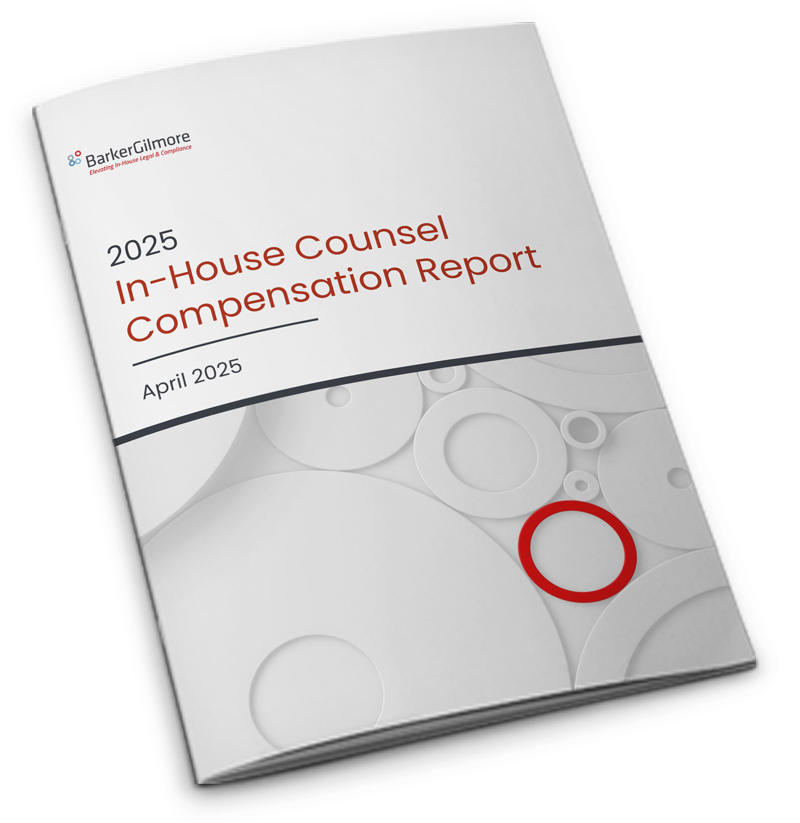A Conversation with Bruce Jackson, Microsoft’s Associate General Counsel/Managing Director of Strategic Partnerships/Office of the President
All of us at BarkerGilmore are committed to the advancement of others. We know and appreciate that so many others are equally motivated to help the next generation of leaders. This is why BarkerGilmore holds diversity in hiring and retaining top talent in such high regard when placing high-ranking candidates.
~~~
My chance encounter with Bruce Jackson at a Black In-House Counsel event in New York City was both thought-provoking and inspirational. When I walked into the meeting room, Bruce immediately gained my attention. Everyone knew him, respected him, and was genuinely happy to see him.
Walking over to shake Bruce’s hand, I overheard people expressing congratulations for the completion of his book. When there was a pause in the discussion, I introduced myself and inquired about his book. Bruce said the premise of it is his life story: his upbringing in New York City’s low-income housing, earning his JD and LLM at Georgetown, and working for a law firm before becoming a Microsoft executive. Bruce’s story offered an eye-opening perspective of the arduous task and perseverance required for diverse lawyers to succeed in corporate America.
Following our meeting, Bruce shared an advance copy of his book with me. He agreed to join me for a GC AdvantageSM webinar which eventually became, “Becoming a Champion for Diversity: A Conversation with Bruce Jackson, Microsoft’s Associate General Counsel/Managing Director of Strategic Partnerships/Office of the President.” Our ensuing discussion was a candid and inspiring fireside chat covering challenges, stereotypes, and threats facing underrepresented classes, unique difficulties diverse lawyers experience, secrets to maintaining the endurance necessary to push forward and achieve greatness, and best practices for creating a corporate culture of inclusion. This article is a summary of our discussion.
Executing DEI Initiatives
A diverse team is a valuable business imperative. Different people with different perspectives, different thoughts, and different backgrounds all lead to a valuable product and excellent service. BarkerGilmore recently conducted a survey focused on DEI initiatives and found that 37% of respondents do not have a specific DEI initiative at their organization. Additionally, this survey found that companies that do have DEI initiatives were more successful in building robust DEI programs. Diversity hiring is not about giving someone a job because the candidate is diverse. Diversity hiring is about, as Bruce says, “leveling the playing field” by giving qualified people an opportunity to compete.
When implementing a DEI initiative, begin with the right attitude. As Bruce advises, embrace a “we’re going to get it right” attitude because “there’s a lot of activity around diversity, but you want to have activity that leads to some sort of result.” Set the culture at the top, starting with transparent leadership who effectively communicates and educates on diversity with frank and open discussions.
Law firms alone cannot advance DEI initiatives across the legal profession. In-house counsel must also play a significant role by being dedicated, consistent, and tenacious in recruiting, hiring, and retaining underrepresented top talent at all ranks within the company, giving more work to historically underrepresented people, and following up on initiatives to drive enforcement of successful outcomes. In-house counsel must demand more diverse law firm counsel representation, encourage firms to hire more diverse candidates, and incentivize people to embrace diversity goals by tying results to financial incentives like bonuses, both for in-house counsel and law firms.
In addition to the broader DEI initiatives, actions at the micro level can achieve desired diversity outcomes. For example, an empathetic approach to diversity can frequently provide productive answers to DEI questions. Acknowledge that diverse professionals have universal desires, like the desire to be included and feeling lonely or isolated because of lack of representation in the workplace. Consider being flexible in allowing employees to work remotely or in geographies where they are more comfortable. Similarly, companies must evaluate remote work as an option company-wide or, at the very least, for the right candidate.
Advice for Diverse Professionals
Leaders must advocate for diversity, and diverse hires must advocate for themselves. Bruce advises being strong and direct when not being seen or heard in a meeting so the exclusion stops. Part of why Bruce felt comfortable speaking up is that his organization allowed him to be his authentic self. “You can’t be great being someone else,” says Bruce. “You can only be great being you.” Diverse professionals must find workplaces that allow authenticity, and the reward will be reflex to both the organization and the individual.
Bruce confronts stereotype threats and uses them to his advantage. Stereotype threats are the frustration and anxiety diverse professionals experience in trying to dismiss a stereotype assigned to a particular underrepresented group. Stereotype threats add an extra layer of challenge to diverse hires’ work, but Bruce uses this challenge to motivate him.
In addition to family and friends, professional mentors and sponsors are invaluable. Mentors advise, coach, and support. Bruce shares the view: “You must outwork people. But you need mentors as well.” Bruce further points out that sponsors – those who actively look for opportunities to promote your abilities and advance your career – are also important. Bruce adds, “If it doesn’t happen organically, be strategic.” For example, offer assistance to potential mentors and sponsors instead of solely asking for something. Bruce recollected asking Brad Smith, the newly appointed GC at Microsoft, “What can I do to help make you successful?” Ultimately, Brad turned out to be Bruce’s most influential mentor and sponsor.
Bruce’s career proves he lives by his quotes, “long-term development over short-term comfort” and, “there are no shortcuts; you need to work.” Bruce supports focusing career choices on goals, not money. For example, perhaps the focus is on company culture or an opportunity to grow. As Bruce explains his decision to take a pay cut to learn about emerging technologies in a new position, “I want to come back with a competitive advantage over any other attorneys who don’t know the technology.” This approach may require sacrifices, which are sometimes necessary to achieve desired goals. Take a chance if the opportunity is worthwhile.
Conclusion
I found the following quote particularly moving in Bruce’s book:
“You swim against the tide. If you are strong and fortunate enough to get to the other side, you stand up proudly. Then you reach back to help those behind you, facing a similar struggle. And therein lies the joy in life.”
To learn more, read Bruce’s book, Never Far from Home: My Journey from Brooklyn to Hip Hop, Microsoft, and the Law, with profits dedicated to five different nonprofit organizations supporting diversity.
As always, reach out anytime if you or your organization may benefit from BarkerGilmore’s recruiting, leadership development, or legal and compliance department consulting services.
John Gilmore and our team of professionals are happy to help accelerate the initiatives that you’re already pursuing or to supplement your current strategic thinking to help you realize your vision. Please reach out if you or your organization may benefit from our recruiting, leadership development and coaching, or legal and compliance department consulting services. Let BarkerGilmore help you build and optimize your legal and compliance departments.
Connect with a legal recruiting advisor
* indicates required fields




